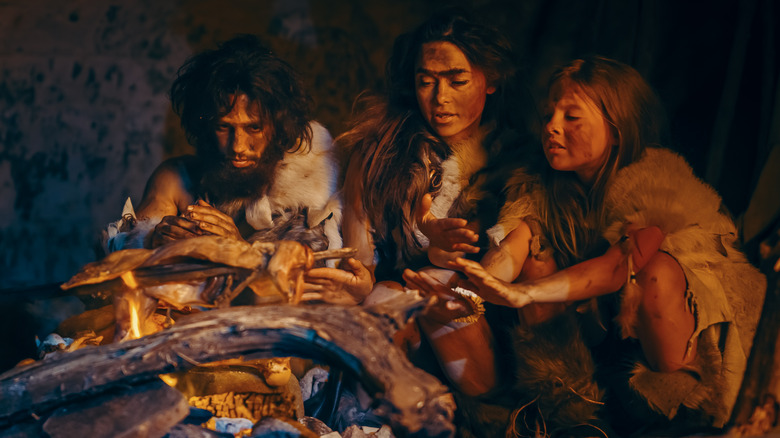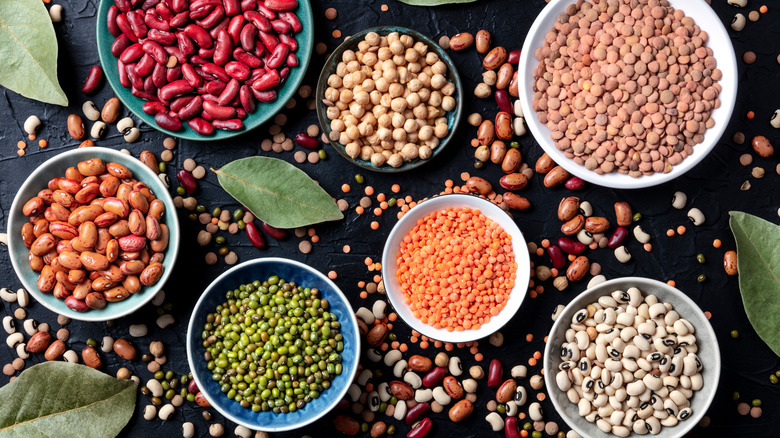Archeological Findings Show Processed Food Is Actually Pre-Historic
If you struggled when you tried following the "paleo" diet then you might be happy to hear that the neanderthals did, too. Over the years, scientists have been discovering new information about early human eating habits that challenges some ideas about the "cave" person's diet.
On November 23, 2022, the journal Antiquity published a study indicating that neanderthals and early homo sapiens (that's us!) used similar multi-step food preparation and cooking methods. It also uncovered that they processed plant foods to make them safer and tastier, including mustard seed, grasses, lentils, nuts, peas, and other "wild pulses."
"Our findings are the first real indication of complex cooking – and thus of food culture – amongst Neanderthals and also early modern people," researcher Chris Hunt of Liverpool John Moores University explained. This "food culture" emerged long before farming and restaurants.
Other researchers published in Science note that neanderthals and early humans enjoyed a high-carb "cheat day" more often than we thought, and today we are smarter because of it. As Christina Warinner, a molecular archaeologist at Harvard, told Science, eating sugar was essential "for human ancestors to efficiently grow a bigger brain," since "they needed energy dense foods containing glucose." Notably, "meat is not a good source of glucose."
The new Antiquity study also uncovered just how neanderthals and early humans got their processed treats when a quick trip to Trader Joe's wasn't an option.
Did neanderthals also brunch?
After studying "charred" food remains in Shanidar Cave in northern Iraq and Franchthi Cave in Greece, the researchers published in Antiquity found that this process required multiple steps to remove toxic compounds and make the food easier to eat. Over 70,0000 years ago, our prehistoric ancestors soaked and then pounded pulses (seeds such as beans, chickpeas, and lentils). They also combined ingredients and used techniques to enhance preferred flavors, including touches of bitterness, which humans are often wary of due to the risk of poison. The Greek cave even contained a "bread-like food."
As The Guardian reports, researchers tried recreating this prehistoric carb, which they describe as a sort of "pancake" or "flatbread" made from seeds. Since the neanderthals didn't have pots and pans, they probably soaked the seeds in a folded animal skin. Chris Hunt, who organized the Shanidar Cave excavation and co-authored the Antiquity article, told The Guardian that the pancake was "really very palatable" with "a sort of nutty taste."
"The seeds they included in their recipes show that they chose to spice-up what were probably early forms of flatbread and that they chose bitter flavors." Hunt explained via Liverpool John Moores University. "So they were eating for enjoyment as well as to nourish themselves!"
So, there you have it: Scientists have officially found the first known instance of Neanderthal processed food and possibly the birth of foodie culture. Processed pulses may just deserve a spot among corn, Spam, and bananas on the list of the foods that changed the world.

